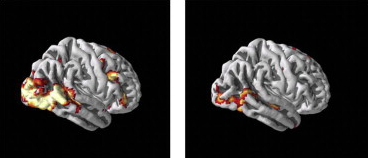An interesting review from Gabrieli et al. suggesting how predicting individual futures with neuromarkers might make a pragmatic contribution to human welfare.
Neuroimaging has greatly enhanced the cognitive neuroscience understanding of the human brain and its variation across individuals (neurodiversity) in both health and disease. Such progress has not yet, however, propelled changes in educational or medical practices that improve people’s lives. We review neuroimaging findings in which initial brain measures (neuromarkers) are correlated with or predict future education, learning, and performance in children and adults; criminality; health-related behaviors; and responses to pharmacological or behavioral treatments. Neuromarkers often provide better predictions (neuroprognosis), alone or in combination with other measures, than traditional behavioral measures. With further advances in study designs and analyses, neuromarkers may offer opportunities to personalize educational and clinical practices that lead to better outcomes for people.

Figure - Functional Brain Measure Predicting a Clinical Outcome: Prior to treatment, patients with social anxiety disorder who exhibited greater posterior activation (left) for angry relative to neutral facial expressions had a better clinical response to CBT (cognitive behavioral therapy) than patients who exhibited lesser activation (right)

